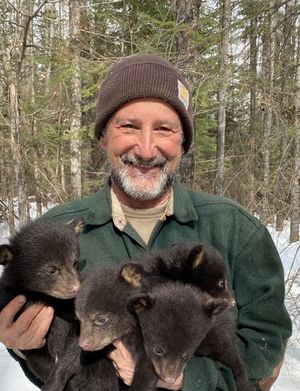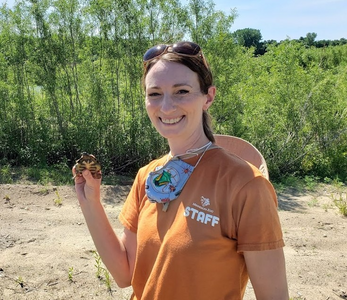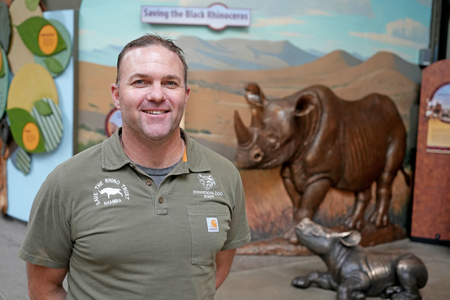-
Dr. Dave Garshelis has studied bears for 42 years. He was a Wildlife Research Scientist for the Minnesota Department of Natural Resources for 37 years, before his retirement in 2020. He conducted population and ecological studies of American black bears, with direct application to management of the state’s bear population. He also advised 20 graduate students on studies of most of the other bear species of the world, mainly aimed at improved conservation. Previously he studied black bears in the Great Smoky Mountains for his M.S. degree (University of Tennessee) and sea otters in Alaska for his PhD (University of Minnesota). His current interests are in monitoring trends of bear populations, identifying threats limiting population growth, and understanding ecological adaptations of bears, especially in human-modified environments or at the edge of their geographic range. Since 2004, Dave has been Chair of the IUCN Bear Specialist Group, which focusses on bear conservation issues worldwide.
-
Dr. Tricia Markle is a Conservation Research Scientist at the Minnesota Zoo where she leads the Zoo’s Freshwater Turtle Conservation Program. Her work includes boosting wild populations of threatened turtles through nest protection, headstarting, road mortality mitigation, and research into habitat needs. Prior to her tenure at the Zoo, Dr. Markle studied the range limits and physiology of North American salamanders during her graduate work, including how specific species may be impacted by climate change. In addition, Dr. Markle has experience studying spotted owls, Fowler’s toads, and jumping slugs. She currently serves on the Minnesota Zoo’s Research Committee and serves as the representative for the American Turtles SAFE program and is an active member of the Midwest Turtle Working Group.
-
Dr. Jeff Muntifering has been primarily based in Namibia since 1999 where he has served as Science Adviser to Save the Rhino Trust, a local organization in Namibia. His applied research has helped inform a variety of innovative conservation and management policies including community-based monitoring programs, rhino re-introduction strategies, behavior change campaigns, and sustainable eco-tourism protocols. He also coordinates community-based projects in Namibia which include a suite of outreach and awareness initiatives. Recently, much of his time has targeted scaling up the conservation tourism model across Namibia as well as sharing the community conservation model with other global conservation programs. Jeff also serves as an adjunct professor at the Namibia University of Science and Technology, a guest lecturer at the Beijing Forestry University, and a research associate at the University of Oxford’s Wildlife Conservation Research Unit.
-
Dr. Seth Stapleton serves as the Director of Conservation and Research for the Minnesota Zoo, where he supports conservation initiatives in Minnesota and the Upper Midwest targeting freshwater mussels, wood and Blanding’s turtles, and prairie butterflies, along with the Minnesota Zoo’s international efforts surrounding community-based black rhino conservation in Namibia and chinchilla conservation in Chile. Prior to his tenure at the Zoo, Seth earned his PhD at the University of Minnesota studying polar bear population ecology, implementing noninvasive methods such as high-resolution satellite imagery and aerial surveys to monitor populations in the Canadian Arctic. He continues to serve as adjunct faculty in the Department of Fisheries, Wildlife and Conservation Biology. Seth is particularly passionate about marine turtles and manages a long-term study of the critically endangered hawksbill in Antigua, West Indies.




